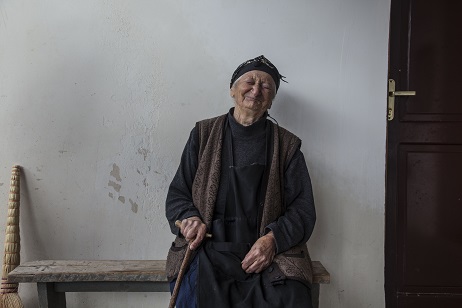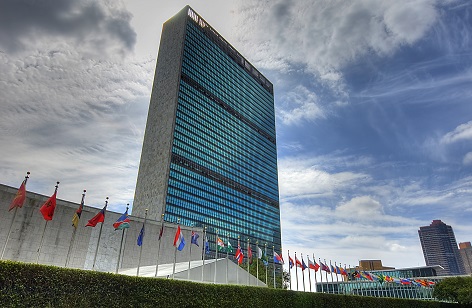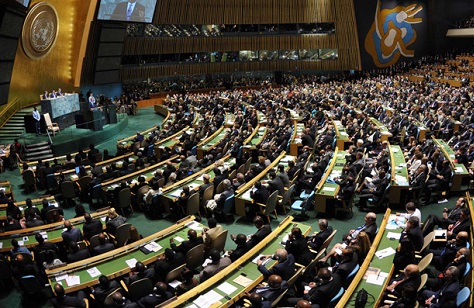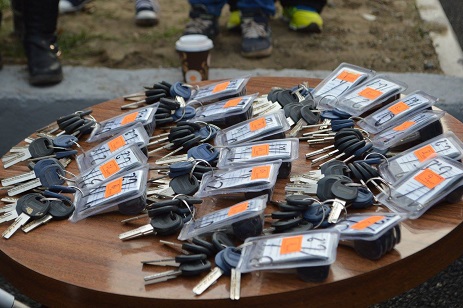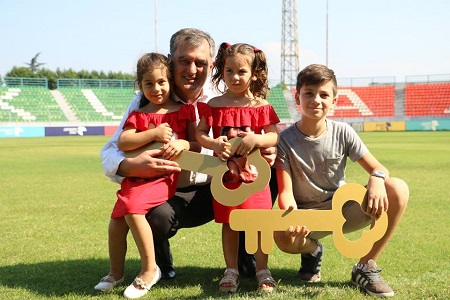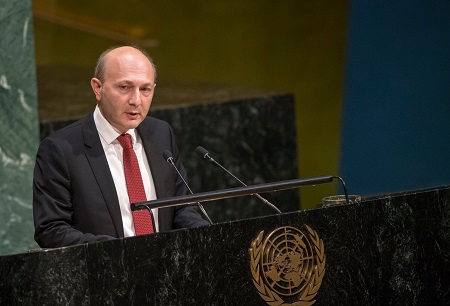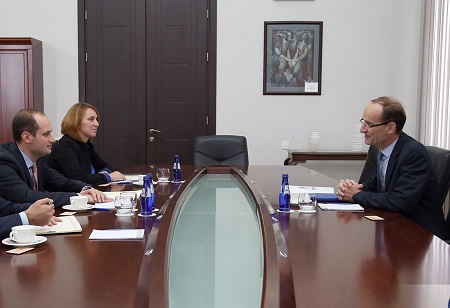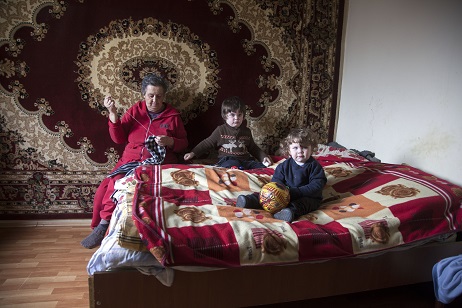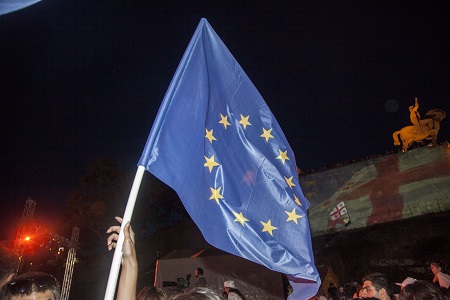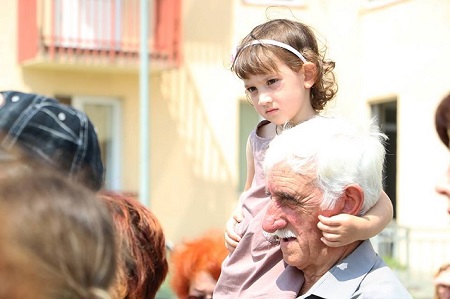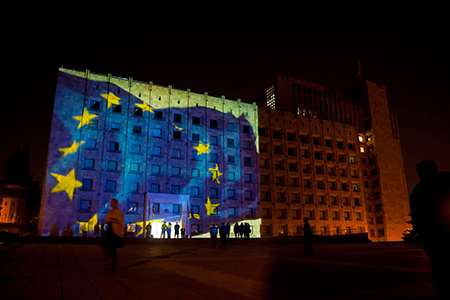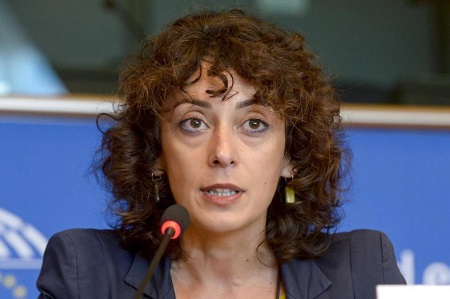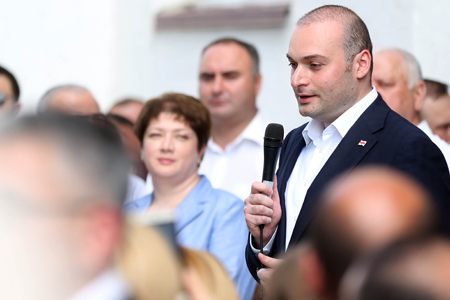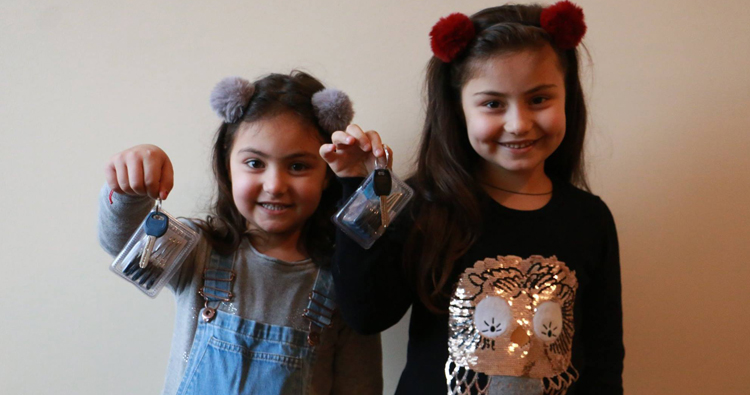UN adopts resolution recognising ‘right of return’ of Georgian IDPs
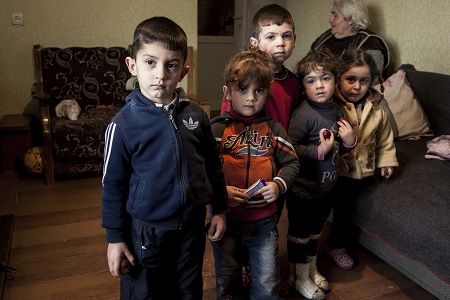
The General Assembly of the United Nations (UN) has recognised the right of return of all internally displaced persons (IDPs) and refugees in Georgia and their descendants, regardless of ethnicity, to their homes throughout that country, including Abkhazia and the Tskhinvali region/South Ossetia.
By a recorded vote of 80 in favour to 14 against, with 61 abstentions, the Assembly adopted a resolution yesterday on the status of internally displaced persons and refugees from those areas, stressing the need to respect their property rights and underlining the urgent need for unimpeded humanitarian access to all those residing in conflict-affected areas of Georgia.
#UNGA just adopted Res L.71 on Status of #IDPs & #Refugees from #Abkhazia & Tskhinvali reg-s of #Georgia, reaffirming their right 2 return pic.twitter.com/pmYkz38Nku
— GeorgiaUN (@GeorgiaUN) June 1, 2017
Also per the text, the Assembly called on all participants in the Geneva International Discussions mandated by the 2008 ceasefire agreement to intensify efforts to establish peace, commit to enhanced confidence-building measures, take immediate steps to ensure respect for human rights, and create favourable security conditions for the voluntary, safe, dignified and unhindered return of all internally displaced persons and refugees to their places of origin.
Kaha Imnadze, Georgia’s representative in the UN, introduced the resolution, underlining that it aimed to galvanize international support for the rights of displaced people in Georgia, the overwhelming majority of whom had indicated their wish to voluntarily return.
The resolution stood for three principles: securing the rights of the displaced, the unacceptability of forced demographic changes, and the need for unimpeded humanitarian access.
Imnadze said the security and human rights situation in the occupied territories had been exacerbated by the installation of razor-wire fences, kidnappings, arbitrary detentions, property seizures, and restrictions on movement, residence and native language education — all on the grounds of ethnic origin. The closure of entry and exit points across the occupation line by the regime in Abkhazia had severely restricted the freedom of movement and impeded the return of internally displaced persons and refugees to their homes.
Australia pleased to support this important resolution https://t.co/7BAhDFNUp7
— Gillian Bird (@AustraliaUN) June 1, 2017
At the meeting supportive statements for Georgia were made by representatives of the United Kingdom, Canada, Ukraine and Lithuania on behalf of Denmark, Estonia, Finland, Iceland, Latvia, Norway, Sweden, Bulgaria, Ireland, Czech Republic and Poland too.
This is the 10th time the UN General Assembly has adopted a resolution initiated by Georgia on the status of IDPs. The Georgian side says that this annual support means Georgia remains on the agenda of the international organisations and also it is important in order to let IDPs know that their rights are not forgotten.
Currently there are about 280,000 internally displaced people (IDPs) in Georgia; about six percent of the country’s total population.
All of Georgia’s IDPs are either from Abkhazia or Tskhinvali region (South Ossetia) – two regions of Georgia that are currently occupied by Russia.
Ethnic and political difficulties have led to the expulsion of Georgians from these territories, sometimes quite violently. Many people fled with only what they could carry, leaving for an uncertain future in other parts of Georgia.
 Tweet
Tweet  Share
Share
